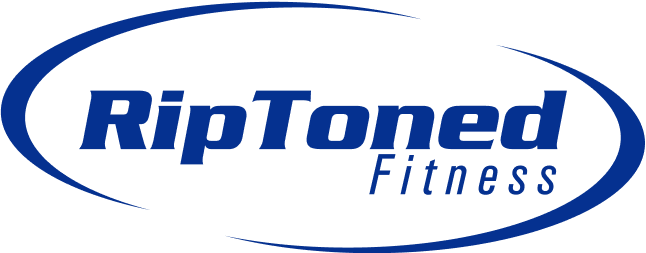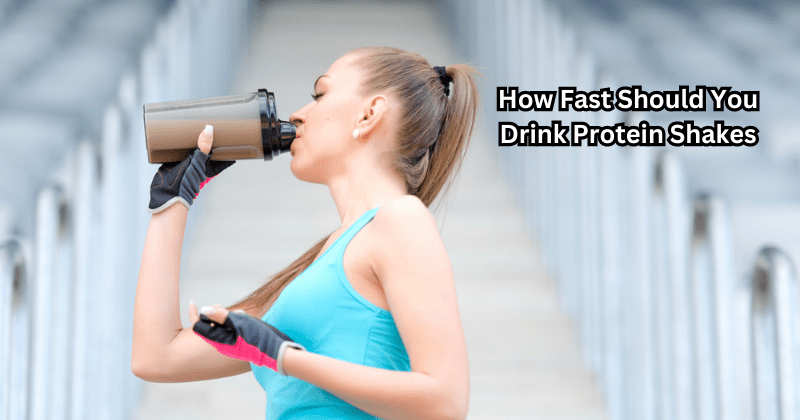When maximizing the benefits of protein shakes, the speed at which you consume them can significantly affect their effectiveness.
The timing of protein intake is a critical factor influencing muscle growth, recovery, and overall performance. Whether before or after a workout, understanding the optimal window for consuming protein shakes can enhance nutrient absorption and support your fitness goals.
Factors such as protein type, meal timing, and individual needs all play a role in determining how fast you should drink protein shakes for optimal results. Let's explore the importance of timing in protein consumption to unlock its full potential.
The Importance of Protein Timing
Protein is a macronutrient essential for building and repairing muscle tissue, making it a crucial component in any fitness journey. After an intense workout, your body experiences micro-tears in muscle fibers that need to be repaired to grow stronger and more substantial. Consuming protein immediately after exercise can provide the necessary nutrients for this repair process, leading to enhanced muscle recovery and growth.
Even before a workout, protein can help prepare your muscles for the upcoming physical stress. This pre-workout protein intake has been shown to enhance muscle protein synthesis and prevent excessive muscle breakdown during exercise.
Types of Protein Shakes
Now that we understand the importance of protein timing let's examine different types of protein shakes and their recommended consumption speed.
Whey Protein:
One of the most popular and fast-absorbing forms of protein, whey is ideal for consumption immediately after a workout to support muscle recovery.
Casein Protein:
This slow-digesting protein is best consumed before bed. It provides a sustained release of amino acids throughout the night, promoting muscle repair and growth.
Plant-based Protein:
For individuals with dietary restrictions or preferences, plant-based protein shakes can be consumed at any time during the day. However, they may not digest as quickly as whey protein. Pea protein has been shown to have a similar absorption rate as whey protein, making it a suitable post-workout option. Soy protein, on the other hand, has a lower absorption rate and may be better suited for pre-workout consumption.
Protein sources such as egg, beef, and collagen can also be found in protein shakes and have varying absorption rates. It's important to consider the type of protein and its intended benefits when determining the speed at which it should be consumed.
Factors to Consider for Optimal Protein Timing
While the type of protein shake plays a significant role in determining how fast you should drink it, other factors should also be considered. These include:
Meal timing:
If you're consuming a protein shake as a meal replacement, it's essential to consider your last meal and how long before your next one will be. Drinking a protein shake too quickly after a meal may be less effective than waiting a few hours.
Individual needs:
Every individual has different fitness goals, body composition, and dietary requirements. Consulting with a nutritionist or personal trainer can help determine the best timing for protein intake based on your specific needs.
Workout intensity:
For intense workouts that lead to significant muscle breakdown, consuming protein within 30 minutes after exercise may be more beneficial compared to moderate workouts. Body weight exercises may not require immediate post-workout protein consumption. A protein shake might be more relevant if you're looking to gain muscle mass or support muscle recovery after intense workouts.
Daily protein intake:
In addition to the timing of protein shakes, it's essential to consider your overall daily protein intake. Consuming adequate protein throughout the day is crucial for muscle recovery and growth, regardless of when you drink your protein shakes.
Protein powders and shakes are convenient and efficient ways to increase your protein intake, but understanding the optimal timing for consuming them can make a significant difference in achieving your fitness goals.
How Fast Should You Drink Protein Shakes?
The ideal timing for protein shakes depends on your needs and fitness goals. Here are some general guidelines to help you make the most out of your protein intake:
- Pre-workout: Consume a fast-absorbing whey protein shake 30 minutes before exercise to support muscle growth and prevent muscle breakdown. To lose weight, consuming a low-calorie protein shake with an added source of carbohydrates.
- Post-workout: Drink a protein shake immediately after exercise to provide the necessary nutrients for muscle repair and recovery. Whey protein is an excellent choice for this purpose.
- Before bed: Slow-digesting casein protein can promote muscle growth and prevent muscle breakdown during sleep.
- Meal replacement: If you're using a protein shake as a meal replacement, consider the timing of your last meal and when your next one will be. This can help determine how fast you should drink the shake for optimal nutrient absorption.
Remember to also listen to your body and adjust according to your personal needs. Don't feel pressured to chug a protein shake quickly if it doesn't feel right. The most important thing is to find a time that works best for your body and supports your fitness goals.
Tips for Consuming Protein Shakes
Now that you have a better understanding of how fast you should drink protein shakes, here are some tips for consuming them effectively:
- Start with a smaller serving size and gradually increase as needed. This can help prevent any digestive discomfort.
- Mix your protein shake with water instead of milk for faster absorption.
- Consider adding carbohydrates to your post-workout protein shake to enhance its effectiveness in muscle recovery.
Essential amino acids, such as BCAAs, can also be added to your protein shake for even more significant muscle-building benefits. Protein powder supplements with added BCAAs are also available on the market. But, if you have a food intolerance or struggle to get enough protein in your diet naturally, protein shakes can be a convenient and beneficial addition to your daily routine.
When to Drink for Weight Loss
While the timing of protein consumption is essential for muscle growth and recovery, it can also play a role in weight loss. Consuming protein shakes as meal replacements or snacks can help you feel fuller for longer, reducing the likelihood of overeating. Additionally, drinking a protein shake before and after a workout can boost metabolism and aid in fat burning.
However, it's important to consider the overall calorie intake and exercise routine for weight loss goals. Moreover, the quality and type of protein shake should also be taken into account to support a healthy weight loss journey.
FAQs
Should you chug or sip a protein shake?
There is no definitive answer to this question as it ultimately depends on personal preference and individual needs. Some people may prefer chugging a protein shake for convenience, while others may find sipping it slowly more comfortable on their digestion.
Why do you have to drink protein shakes within 20 minutes?
The 20-minute timeframe for consuming protein shakes is a general guideline for optimal nutrient absorption and muscle recovery after exercise. However, this may vary depending on individual needs and goals. It's important to listen to your body and adjust accordingly.
Are you supposed to drink protein shakes fast?
As mentioned earlier, there is no one answer to this question as it depends on various factors such as individual needs, fitness goals, and type of protein shake. Some people may find drinking protein shakes quickly more beneficial for muscle recovery and growth.
Is it better to put milk or water in a protein shake?
It depends on personal preference and dietary requirements. Mixing protein powder with water provides faster absorption, while milk can add more calories and nutrients to the shake. It's important to consider both options and choose what works best for your body.
Conclusion
In conclusion, when it comes to drinking protein shakes, timing is everything. Consuming a protein shake within 30-60 minutes after a workout, when your muscles are most receptive, can help promote muscle recovery and growth. However, it's also important to drink protein shakes at a pace that works for your body.
Aim to finish your shake within 15-30 minutes to avoid overwhelming your digestive system. Additionally, consider your individual protein needs and adjust your intake accordingly. By drinking protein shakes at the right pace, you can maximize their effectiveness and support your fitness goals.

Click Here to Learn More About the Rip Toned Supplements

